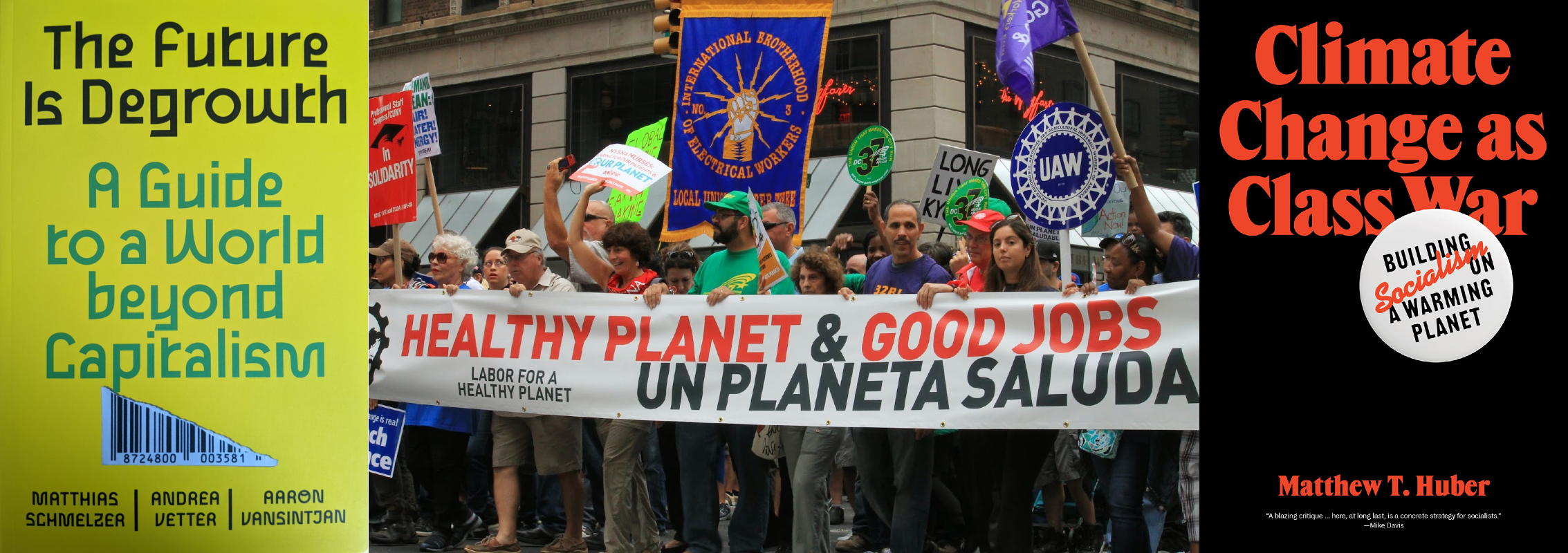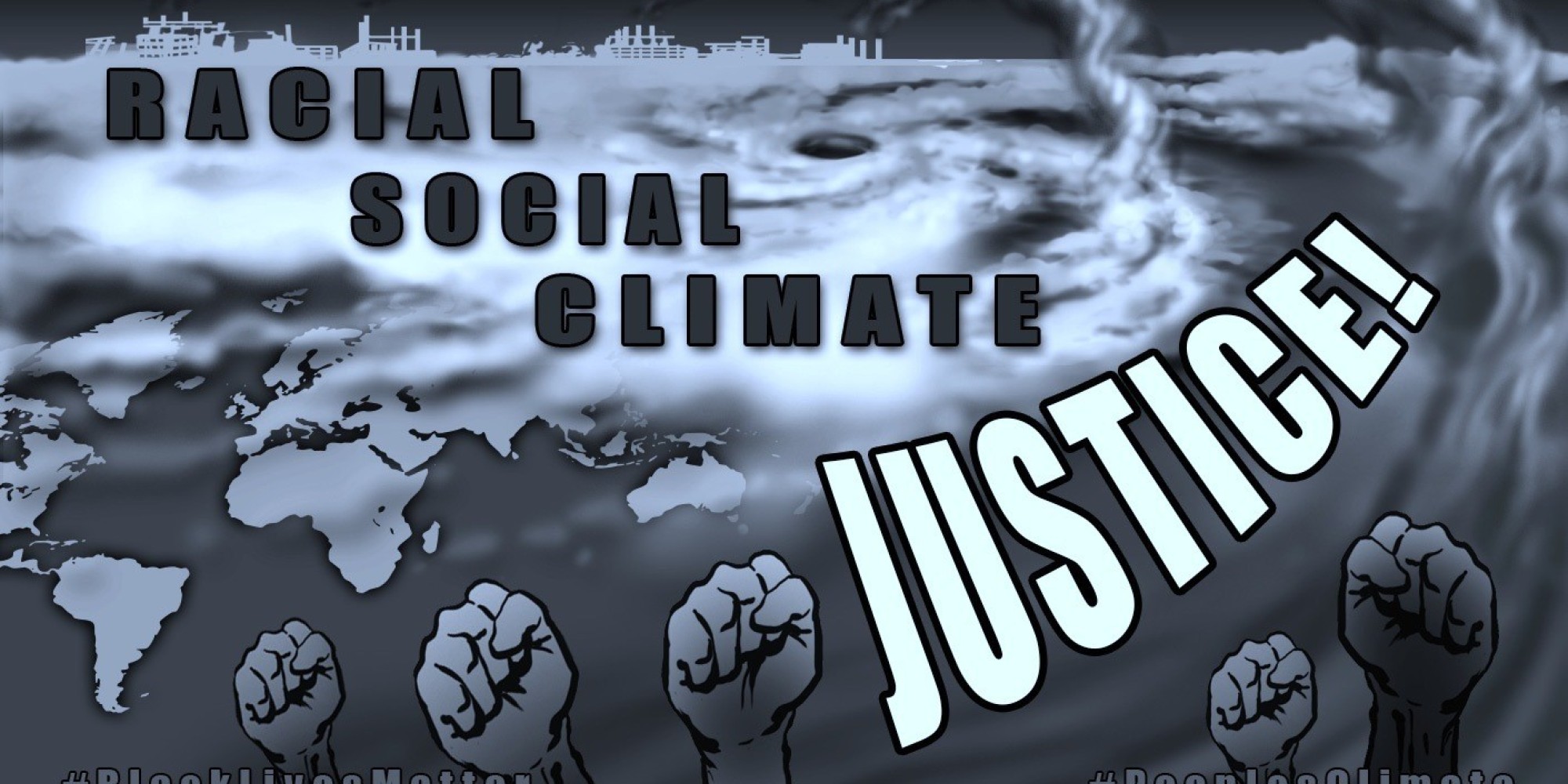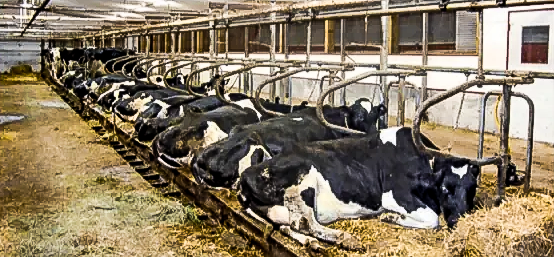Food and politics
Climate, Class, and Degrowth
On-Line via Zoom You will receive Zoom link by email before the event., NYJoin the MEP's Ecosocialist Study Group as we reconvene to consider two books that are provoking wide discussion and debate: Matt Huber's Climate Change as Class War, and The Future Is Degrowth, by Matthias Schmelzer, Aaron Vansintjan, and Andrea Vetter.
Climate Justice and Socialist Strategy with Jason W. Moore
Video available on YouTubeVideo available at https://youtu.be/2nZ9xgNn35A
Jason W. Moore addresses the missed opportunity for a program of planetary justice as the “Environmentalism of the Rich” came to the fore after 1968 and overshadowed Martin Luther King, Jr.’s appeal for radical action against capitalism’s “triple evils” of racism, militarism, and class exploitation. As King underscored in his final months, justice cannot be effectively pursued piece by piece. The “whole society” with and within the web of life must be reinvented, inasmuch as we are “all caught in an inescapable network of mutuality, tied into a single garment of destiny.”
Climate, Class, and Degrowth
On-Line via Zoom You will receive Zoom link by email before the event., NYJoin the MEP's Ecosocialist Study Group as we reconvene to consider two books that are provoking wide discussion and debate: Matt Huber's Climate Change as Class War, and The Future Is Degrowth, by Matthias Schmelzer, Aaron Vansintjan, and Andrea Vetter.
Climate, Class, and Degrowth
On-Line via Zoom You will receive Zoom link by email before the event., NYJoin the MEP's Ecosocialist Study Group as we reconvene to consider two books that are provoking wide discussion and debate: Matt Huber's Climate Change as Class War, and The Future Is Degrowth, by Matthias Schmelzer, Aaron Vansintjan, and Andrea Vetter.
Climate, Class, and Degrowth
On-Line via Zoom You will receive Zoom link by email before the event., NYJoin the MEP's Ecosocialist Study Group as we reconvene to consider two books that are provoking wide discussion and debate: Matt Huber's Climate Change as Class War, and The Future Is Degrowth, by Matthias Schmelzer, Aaron Vansintjan, and Andrea Vetter.
Climate, Class, and Degrowth
On-Line via Zoom You will receive Zoom link by email before the event., NYJoin the MEP's Ecosocialist Study Group as we reconvene to consider two books that are provoking wide discussion and debate: Matt Huber's Climate Change as Class War, and The Future Is Degrowth, by Matthias Schmelzer, Aaron Vansintjan, and Andrea Vetter.
Climate, Class, and Degrowth
On-Line via Zoom You will receive Zoom link by email before the event., NYJoin the MEP's Ecosocialist Study Group as we reconvene to consider two books that are provoking wide discussion and debate: Matt Huber's Climate Change as Class War, and The Future Is Degrowth, by Matthias Schmelzer, Aaron Vansintjan, and Andrea Vetter.
Climate, Class, and Degrowth
On-Line via Zoom You will receive Zoom link by email before the event., NYJoin the MEP's Ecosocialist Study Group as we reconvene to consider two books that are provoking wide discussion and debate: Matt Huber's Climate Change as Class War, and The Future Is Degrowth, by Matthias Schmelzer, Aaron Vansintjan, and Andrea Vetter.
Animals at Work Under Capitalism
Online: Zoom link will be provided to registered participantsA discussion and reading group on the central role of human and nonhuman animal labor in the capitalist economy, both historically and today. What are the anthropocentric premises underlying mainstream understandings of labor in Marxist theory? How might we expand our thinking to include the multiple forms of nonhuman labor necessary for capitalism? What kinds of labor do nonhuman animals provide in production, and on what cultural, ideological and economic bases is work divided among people, nonhuman animals and machines?
Animals at Work Under Capitalism
Online: Zoom link will be provided to registered participantsA discussion and reading group on the central role of human and nonhuman animal labor in the capitalist economy, both historically and today. What are the anthropocentric premises underlying mainstream understandings of labor in Marxist theory? How might we expand our thinking to include the multiple forms of nonhuman labor necessary for capitalism? What kinds of labor do nonhuman animals provide in production, and on what cultural, ideological and economic bases is work divided among people, nonhuman animals and machines?
Animals at Work Under Capitalism
Online: Zoom link will be provided to registered participantsA discussion and reading group on the central role of human and nonhuman animal labor in the capitalist economy, both historically and today. What are the anthropocentric premises underlying mainstream understandings of labor in Marxist theory? How might we expand our thinking to include the multiple forms of nonhuman labor necessary for capitalism? What kinds of labor do nonhuman animals provide in production, and on what cultural, ideological and economic bases is work divided among people, nonhuman animals and machines?
Animals at Work Under Capitalism
Online: Zoom link will be provided to registered participantsA discussion and reading group on the central role of human and nonhuman animal labor in the capitalist economy, both historically and today. What are the anthropocentric premises underlying mainstream understandings of labor in Marxist theory? How might we expand our thinking to include the multiple forms of nonhuman labor necessary for capitalism? What kinds of labor do nonhuman animals provide in production, and on what cultural, ideological and economic bases is work divided among people, nonhuman animals and machines?
Animals at Work Under Capitalism
Online: Zoom link will be provided to registered participantsA discussion and reading group on the central role of human and nonhuman animal labor in the capitalist economy, both historically and today. What are the anthropocentric premises underlying mainstream understandings of labor in Marxist theory? How might we expand our thinking to include the multiple forms of nonhuman labor necessary for capitalism? What kinds of labor do nonhuman animals provide in production, and on what cultural, ideological and economic bases is work divided among people, nonhuman animals and machines?
Animals at Work Under Capitalism
Online: Zoom link will be provided to registered participantsA discussion and reading group on the central role of human and nonhuman animal labor in the capitalist economy, both historically and today. What are the anthropocentric premises underlying mainstream understandings of labor in Marxist theory? How might we expand our thinking to include the multiple forms of nonhuman labor necessary for capitalism? What kinds of labor do nonhuman animals provide in production, and on what cultural, ideological and economic bases is work divided among people, nonhuman animals and machines?
Animals at Work Under Capitalism
Online: Zoom link will be provided to registered participantsA discussion and reading group on the central role of human and nonhuman animal labor in the capitalist economy, both historically and today. What are the anthropocentric premises underlying mainstream understandings of labor in Marxist theory? How might we expand our thinking to include the multiple forms of nonhuman labor necessary for capitalism? What kinds of labor do nonhuman animals provide in production, and on what cultural, ideological and economic bases is work divided among people, nonhuman animals and machines?



